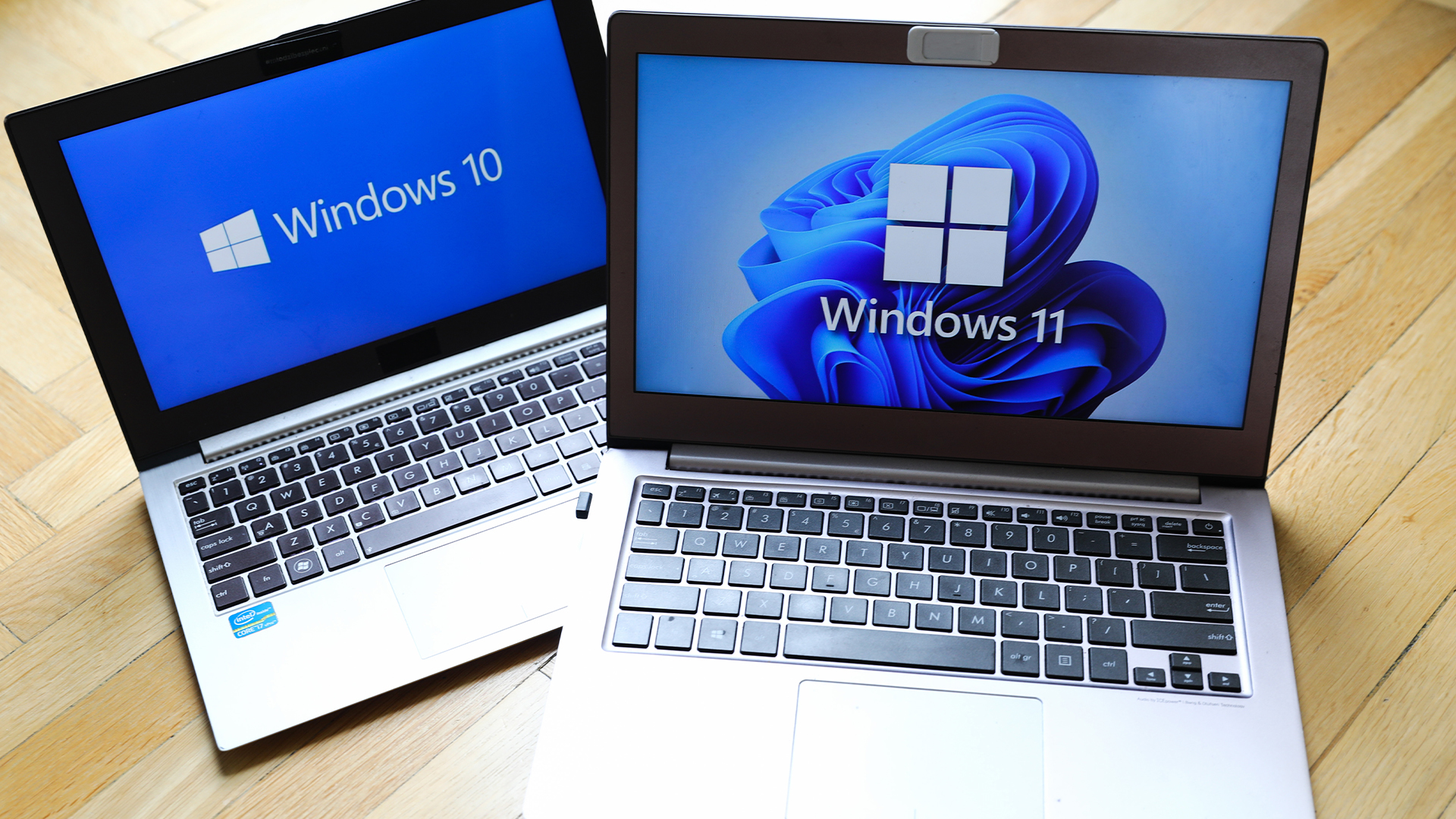Windows XP end of support one year countdown begins
Microsoft's 12-year-old operating system will be out of support this time next year, putting 600m PC users at risk, it is claimed.

On 8 April 2014 Microsoft will finally pull the plug and end support for Windows XP, a 12-year-old operating system that is estimated to still run on around 600 million of the world's PCs.
The software giant has repeatedly warned users about the performance issues they may face should they remain on XP after this date, as the firm will no longer push out technical and security updates to their systems.
However, despite Microsoft's best efforts, the message doesn't seem to be getting through to everyone, with some industry watchers claiming progress in getting people off XP has effectively stalled in recent months.
Who remembers how to migrate desktops anymore?
Since the release of Windows 7 in October 2009, Windows XP usage started to drop, according market date from NetMarketShare. So much so, the number of people using Windows 7 overtook Windows XP for the first time last August.
However, since then the number of people using XP seems to have reached something of a plateau.
In a blog post, application compatibility software vendor Browsium blamed this trend on the fact the "easy" Windows 7 migrations have already been done in the enterprise. This leaves the complex and expensive ones still to do, which is why some firms are reluctant to crack on with them.
"There are many factors that slow these migrations, and they can vary by enterprise," the post stated.
Sign up today and you will receive a free copy of our Future Focus 2025 report - the leading guidance on AI, cybersecurity and other IT challenges as per 700+ senior executives
"For some, it's budget challenges in a difficult economy [whereas] for others, it's simply the fact that XP is solid and it works."
This is a view backed by new research from application rationalisation firm Camwood.
The company polled 250 CIOS, CTOS and IT directors who work at firms employing at least 2,000 staff to see how their Windows XP migrations are progressing.
Of those polled, 42 per cent said they have started migrating off the aged OS, while around 20 per cent said they plan to carry on using XP once Microsoft pulls its support for the software.
IT budget concerns were cited as a major barrier to ditching XP by 16 per cent of respondents, while a quarter of those that have already started preparing to upgrade to Windows 7 expressed concerns about how much it would cost to ensure their migration goes without a hitch.
However, an IDC report from last year claimed Windows XP users lose nearly eight hours a year to downtime, and spend five times as much on PC support than people running Windows 7.
It also claimed the annual per PC support cost of using Windows XP was around 554, while for Windows 7 users, this figure is just 107.
Adrian Foxall, chief executive of Camwood, said many businesses don't seem to appreciate the risks they face by staying on XP once support ends.
"In these tough economic times, it is not surprising that business leaders do not want to invest a substantial amount of money in something that essentially isn't broken, as is the case with Windows XP today," said Foxall.
"But...with the clock ticking, IT and the board need to join forces and work together to migrate to a new OS that will support their organisation now and into the future.
"Failure to do so will put their company in jeopardy," he added.
The Browsium blog post also points out, for firms still using XP, the last major operating system migration they did may have been over 10 years ago, meaning they may not have the in-house knowhow needed to carry out a Windows 7 migration.
"The move from Windows NT or Windows 2000 to Windows XP was the last time organisations really migrated [because] everone skipped Windows Vista leaving Windows XP in place for 12 years," the post stated.
"Who remembers how to migrate desktops anymore?"
-
 Microsoft unveils Maia 200 accelerator, claiming better performance per dollar than Amazon and Google
Microsoft unveils Maia 200 accelerator, claiming better performance per dollar than Amazon and GoogleNews The launch of Microsoft’s second-generation silicon solidifies its mission to scale AI workloads and directly control more of its infrastructure
-
 Infosys expands Swiss footprint with new Zurich office
Infosys expands Swiss footprint with new Zurich officeNews The firm has relocated its Swiss headquarters to support partners delivering AI-led digital transformation
-
 Windows 10 extended support costs could top $7 billion
Windows 10 extended support costs could top $7 billionNews Enterprises sticking with Windows 10 after the October deadline face huge costs
-
 Tiny11 review: Windows 11 with only 2GB of RAM
Tiny11 review: Windows 11 with only 2GB of RAMReview A version of Windows 11 for older machines that don't meet the full requirements
-
 Red Hat Enterprise Linux becomes foundational operating system for Cohesity Data Cloud
Red Hat Enterprise Linux becomes foundational operating system for Cohesity Data CloudNews New strategic partnership between Red Hat and Cohesity aims to drive innovation in the data security and management space
-
 Ubuntu shifts to four-week update cycle
Ubuntu shifts to four-week update cycleNews Critical fixes will also come every two weeks, mitigating the issues involved with releasing prompt patches on the old three-week cadence
-
 AlmaLinux follows Oracle in ditching RHEL compatibility
AlmaLinux follows Oracle in ditching RHEL compatibilityNews Application binary compatibility is now the aim with 1:1 now dropped
-
 How big is the Windows 10 cliff-edge?
How big is the Windows 10 cliff-edge?ITPro Network With some comparing the upcoming Windows 10 end of life to Windows XP, we ask members of the ITPro Network for their insight
-
 Everything you need to know about the latest Windows 11 updates - from bug fixes to brand-new features
Everything you need to know about the latest Windows 11 updates - from bug fixes to brand-new featuresNews Two new cumulative updates are on the way and will be installed automatically on Windows 10 and Windows 11 machines
-
 How to download a Windows 11 ISO file and perform a clean install
How to download a Windows 11 ISO file and perform a clean installTutorial Use a Windows 11 ISO to install the operating system afresh